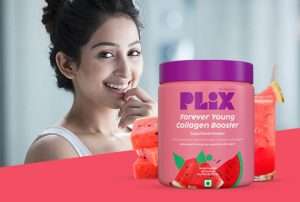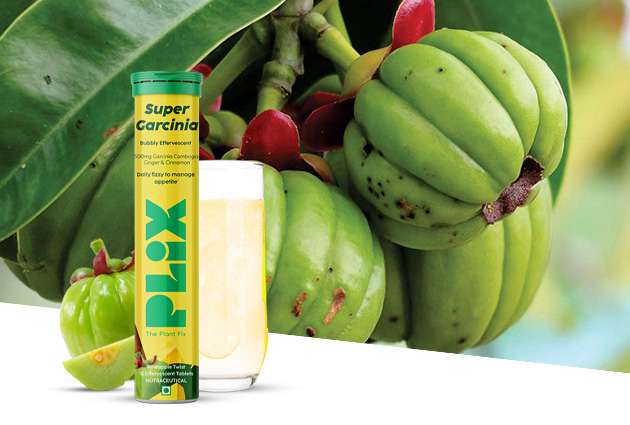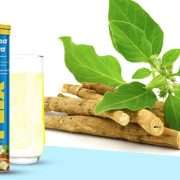Collagen Anti-Ageing For Younger-Looking Skin

In recent years there has been a lot of discussion concerning collagen and our skin’s natural ability to produce collagen. How is collagen important for our skin? Why do we need collagen supplementation? Let us solve these questions and look at some natural sources of collagen along with the best collagen supplement for anti ageing!
Collagen Anti Ageing: Benefits of Collagen For Skin
Reduces Dryness
When your skin is dehydrated, it can appear dull, dry, and flaky. Collagen contains the amino acid hydroxyproline, which hydrates your skin by improving moisture levels. Hydrating your skin and including collagen in your diet will help you achieve smoother-looking skin!
Improves Skin Elasticity,
Of course, losing skin suppleness is a natural aspect of ageing, but there is a technique to improve it. Skin elasticity is the ability of your skin to return to its original position after being stretched, and collagen can help with that! Because collagen is a protein that is fibrous, it helps skin to be flexible, making your skin firm, which is essential for looking young and healthy.
Diminishes Fine Lines And Wrinkles
The reduction of collagen and elastin in your skin causes fine lines and wrinkles. Collagen and elastin support your skin’s structure, keeping it smooth and robust. As these fibres degrade, your skin loses its strength and flexibility. Fine lines and wrinkles may occur as a result of this. For the majority of people, exposure to the sun’s harmful UV rays is the leading cause of skin ageing, resulting in fine lines, wrinkles, and rough texture. Heredity, and natural ageing, can all play a part. Consuming collagen-rich foods or collagen supplements help in improving skin elasticity and reducing fine lines and wrinkles.
Makes Skin look Plumper
Indeed, our skin tends to return within no time, to its former, smooth appearance after expressing. However, as we age and our bodies create less collagen, our skin becomes less effective at reverting to its prior state. Nothing is more beautiful than a grin, but it often results in the formation of fine lines and wrinkles. Furthermore, we lose fat from our faces, which can contribute to a less youthful appearance. Collagen can help restore your skin’s mojo and make it appear plumper.
Collagen Anti Ageing: Reasons For Decline Of Collagen
UV exposure
UV rays have a negative impact on collagen through a variety of mechanisms, including DNA changes in collagen-producing cells and the production of free radicals, which can directly affect collagen via oxidative stress.
Age
Collagen production begins to decline in most people’s bodies in their late teens or early twenties and falls by roughly 1% every year.
Smoking
You’ve probably heard that smoking is bad for you and causes premature ageing. The main reason for this is that it has a direct and unfavorable effect on collagen. Smoking is the “big one” for collagen damage. Tobacco use reduces the amount of oxygen supply to tissues. This, together with the oxidative stress caused by the compounds in tobacco smoke, can result in premature wrinkles.
Inflammation-Triggering Diets
Inflammation is one of the most dangerous enemies of any tissue, including connective tissues fuelled by collagen. Inflammatory diets, which frequently contain high-sugar, simple carbohydrates, and processed meat, activate the immune system and promote inflammation throughout the body. This may obstruct healing, including the repair of environmentally damaged skin cells. High sugar levels can cause collagen to harden and fragment, weakening your skin’s foundation and promoting premature skin ageing.
Stress
According to research, stress can cause pro-inflammatory responses, which can reduce your body’s ability to naturally produce collagen. Stress also produces an increase in hormones such as cortisol, which reduces collagen formation. In high-stress circumstances, less collagen is made because more of the body’s resources are utilized to resist stress and the inflammation it causes.
Genetics
Genetics have a significant role in determining how much collagen your body produces and breaks down. So, if your parents and grandparents have had great-looking skin for years, chances are you will as well. Of course, you have no control over this, which is why focusing on things you do have control over, such as diet, stress management, and UV protection is important to ensure you have healthy collagen production.
Collagen Anti Ageing: Natural Sources Of Collagen
Beans
You’ll be surprised to know how plant-based sources can also help in collagen production! Vegetarians and vegans can utilize beans as a natural green source for enhancing collagen synthesis. Beans provide both protein and copper, which are both required for collagen formation. Beans are high in protein, which includes several essential amino acids involved in collagen formation. They contain a variety of amino acids, including lysine, leucine, and valine. Lysine, in particular, is important in the synthesis of collagen in your body.
Leafy Green Vegetables
Kale, spinach, and lettuce are super healthy vegetables! They are low in calories, high in vitamins and minerals, and are good sources of fibre. These leafy green vegetables contain chlorophyll, a component present in green plants that may assist in boosting collagen production and improve skin texture/ Leafy greens such as kale, spinach, and cabbage, as well as vegetables such as broccoli, Brussel sprouts, red and green bell peppers, cabbage, potatoes (both sweet and white), tomatoes are also high in vitamin C which is known to boost your immunity and collagen levels.
Avocados
Avocados, like leafy greens, are nutritious fruits that are a good source of healthy fats, vitamins and nutrients including potassium and fibre. While avocados do not contain collagen, they are high in numerous elements that help in collagen formation. Vitamin C is one of them that is required for collagen synthesis, avocados are also high in iron, magnesium, niacin, and other essential minerals. They also include beneficial lipids and nutrients that keep our skin hydrated and nourished. Avocados, in addition to being a significant source of collagen, also contain vitamin C and vitamin E, all of which are required for collagen formation.
Anti-Ageing Skin Care: Berries
Berries, such as blackberries, blueberries, raspberries, and strawberries, are also high in vitamin C. Tropical fruits such as guava, kiwi, mango, and pineapple contain vitamin C as well. Berries, like avocados, have a low collagen content but are high in vitamin C, which is essential for collagen formation. Berries are high in flavonoids, stilbenes, tannins, and other antioxidants, which may help to improve your overall health and reduce the effects of ageing.
Citrus Fruits
Citrus and other vitamin-C-rich fruits are important collagen-boosting diets
because vitamin C as discussed above, is essential for collagen formation. This nutrient is also beneficial because it neutralises free radicals, which degrade collagen and elastin. To get adequate vitamin C, you should consume eat a variety of vitamin-C-rich foods such as oranges, lemons, grapefruit, and other citrus fruits. Oranges are particularly high in vitamin C. Lemons, limes, and grapefruits are also high in vitamins that aid in the formation of collagen.
Tomatoes
Another reason to add additional tomatoes to your salad! Tomatoes have a high concentration of lycopene, an amino acid that protects your skin from UV radiation. Sun exposure destroys collagen fibres in your skin, hastening the ageing process (i.e. fine lines and wrinkles). Including tomatoes in your diet can help you maintain collagen and youthful skin. Tomatoes, are also high in vitamin A which can help heal and regenerate damaged collagen. Tomatoes also contain vitamin C, aid in collagen formation and skin suppleness.
How To Look Younger Naturally With Collagen:
Despite the fact that collagen is abundant in our bodies, it has become a top-selling supplement for improving skin, hair and even nails! According to Google Trends, online searches for collagen have been steadily increasing since 2014. Collagen supplements contain amino acids, which are protein building blocks, and some may also contain minerals related to healthy skin and hair, such as vitamin C, biotin, or zinc. If you are looking for collagen supplements, you should check out this 100% vegan, Non-GMO supplement by Plix called Collagen Booster. Plix Whole Food Collagen Booster is made entirely of plant-based ingredients. Hyaluronic acid present in this anti-ageing formula attracts and binds water molecules in your skin, making your skin supple and more plumper. Collagen booster increases skin elasticity and minimises fine lines and wrinkles, resulting in firmer, tighter, and younger-looking skin. This product also contains Vitamin C that lightens your skin tone to reveal a radiant-looking skin!
Frequently Asked Questions (FAQs)
1. What is collagen?
Collagen is the primary structural protein found in the extracellular matrix of the body’s connective tissues. Its principal job is to provide structural support for a variety of human body parts. Your organs, tendons, muscles, ligaments, and bones are all included. Collagen is that natural glue that holds your body together!
2. What are the natural sources of collagen?
Berries, legumes like beans, citrus-rich fruits like oranges, sweet lime, lemons, green leafy vegetables like spinach, kale, cabbage, broccoli and green bell peppers are some of the natural sources of collagen.
3. How does collagen benefit your skin?
Collagen hydrates your skin and reduces dryness, making your skin look supple and plumper. Collagen also increases skin elasticity and reduces fine lines and wrinkles.
4. What are the benefits of Collagen Booster from Plix?
Collagen booster stimulates the production of collagen in the body, which helps to slow the ageing process and promote joint health. plant based collagen powder from Plix reduces the appearance of fine lines and wrinkles by restoring skin suppleness, increasing collagen synthesis, and naturally moisturising your skin from within!
5. What is the difference between collagen and collagen boosters?
Collagen is composed of nutrients such as amino acids that aid in the restoration of skin suppleness, whereas collagen builders help in the synthesis of collagen in the body but do not include collagen.
6. Is a plant-based collagen supplement superior to an animal-based collagen supplement?
According to research, plant-based collagen supplements for your skin are just as beneficial as marine/animal collagen supplements. Our collagen supplement has the same amino acids as animal collagen, but it is derived from non-animal sources. Collagen is a protein that our bodies produce naturally. Our bodies produce less collagen as we age, resulting in poor skin texture, dullness, fine lines/wrinkles, a slower metabolism, and joint pain. Consuming collagen may provide a number of health benefits, ranging from joint pain relief to improved skin health.














